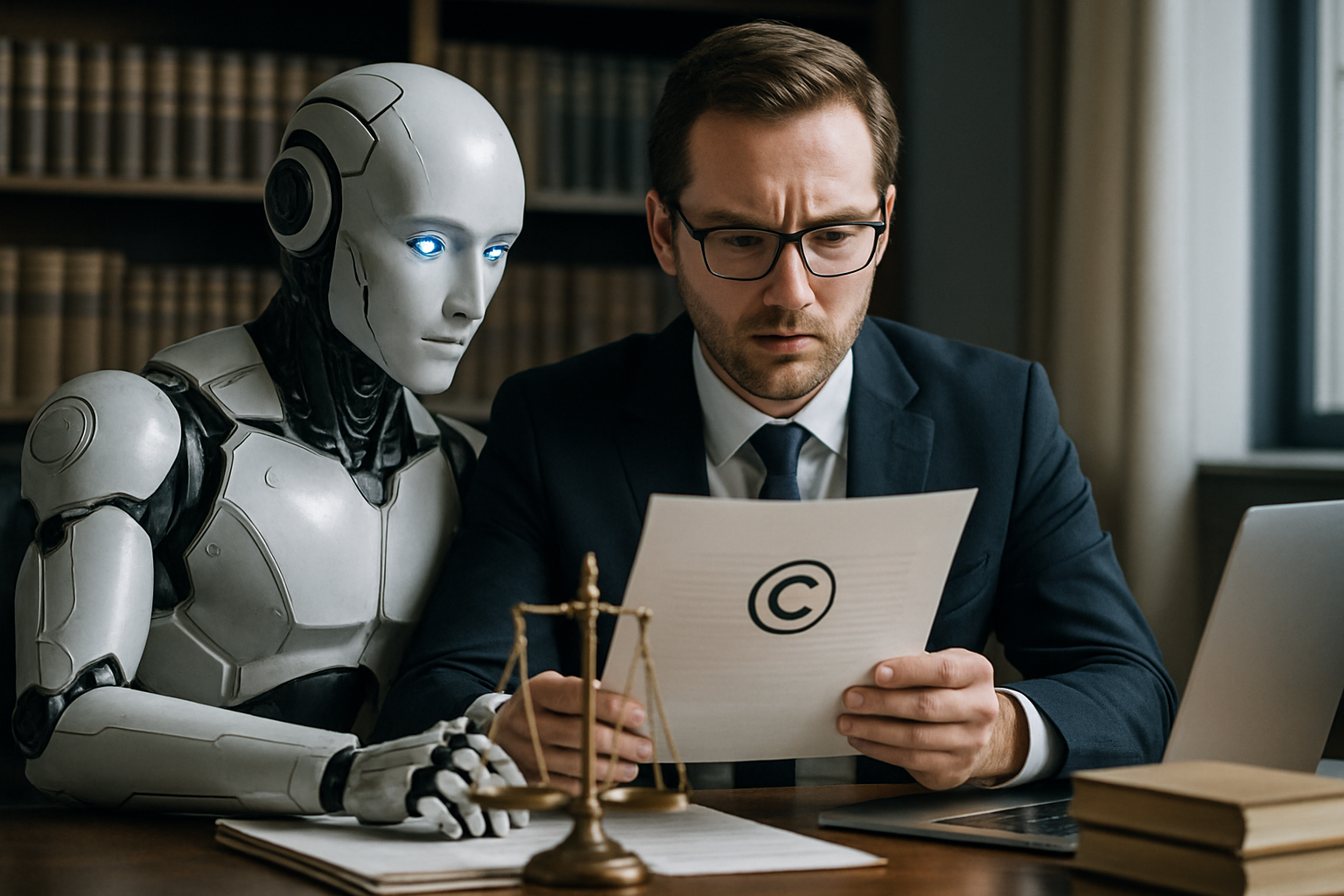Title: Redefining Intellectual Property in the Age of AI
Introduction: In an era where artificial intelligence is reshaping industries and creative processes, the landscape of intellectual property law faces unprecedented challenges. This article delves into the intricate legal questions surrounding AI-generated content and inventions, exploring how traditional notions of authorship and ownership are being redefined in courtrooms and legislatures worldwide.

Historical Context of Intellectual Property Rights
To understand the current challenges, it’s crucial to examine the historical foundations of intellectual property law. Intellectual property rights have their roots in the 18th century, with the Statute of Anne in 1710 marking the first copyright law. Patents emerged as a means to incentivize innovation by granting inventors exclusive rights to their creations. These laws were built on the premise of human creativity and ingenuity, a concept now being challenged by AI’s capabilities.
The Authorship Dilemma
One of the central issues in AI-generated content is the question of authorship. Traditional copyright law requires a human author, but AI-created works blur this line. Some argue that the AI should be considered the author, while others contend that the programmer or the user of the AI system should hold the rights. This debate has led to landmark cases, such as the Naruto v. Slater case, which, although not directly related to AI, set a precedent by ruling that non-human entities cannot hold copyrights.
Patent Law and AI Inventions
In the realm of patent law, similar questions arise. Can an AI system be listed as an inventor on a patent application? The answer, according to most patent offices worldwide, is currently no. The European Patent Office, in a 2020 decision, rejected two patent applications that listed an AI system called DABUS as the inventor, stating that inventors must be natural persons. This ruling has significant implications for the future of AI-driven innovation and the incentives for developing AI systems capable of invention.
Global Legislative Responses
As courts grapple with these issues on a case-by-case basis, legislators around the world are beginning to address the AI-IP intersection more systematically. The European Union, for instance, has been at the forefront of these efforts with its proposed AI Act, which includes provisions on AI and intellectual property. In the United States, the Copyright Office has issued guidance on AI-generated works, stating that copyright protection extends only to works of human authorship.
Economic Implications and Innovation Incentives
The resolution of these legal questions carries significant economic implications. Intellectual property rights have long been viewed as a crucial incentive for innovation, providing creators and inventors with the ability to profit from their work. If AI-generated content cannot be protected under current IP laws, it could potentially disincentivize investment in AI technologies. Conversely, granting too broad protection to AI-generated works could stifle human creativity and lead to monopolistic practices in emerging AI-driven industries.
Ethical Considerations and Public Policy
Beyond the legal and economic aspects, there are profound ethical considerations at play. Should society value AI-generated content differently from human-created works? How do we ensure that AI systems are not used to mass-produce content that floods the market and devalues human creativity? These questions intersect with broader public policy concerns about the impact of AI on employment, creativity, and cultural production.
The Path Forward: Adapting Legal Frameworks
As AI continues to advance, it’s clear that existing intellectual property frameworks will need to evolve. Some experts propose creating a new category of rights specifically for AI-generated works, while others suggest modifying current laws to accommodate these new forms of creation. Whatever path is chosen, it will require careful consideration of the balance between promoting innovation, protecting human creators, and serving the public interest.
In conclusion, the intersection of AI and intellectual property law represents one of the most complex and consequential legal challenges of our time. As we navigate this uncharted territory, policymakers, legal experts, and technologists must work together to craft solutions that foster innovation while preserving the fundamental principles of intellectual property protection. The decisions made in the coming years will shape the future of creativity, invention, and the role of AI in our society for generations to come.




